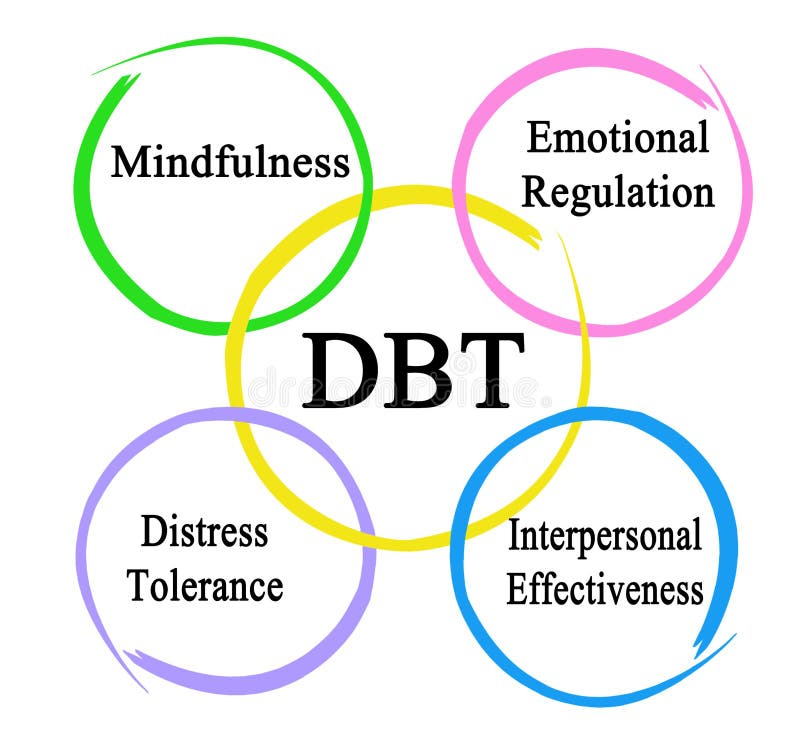Unlocking Recovery Paths: DBT London Provides Specialized Support
Unlocking Recovery Paths: DBT London Provides Specialized Support
Blog Article
Empowering Individuals With Efficient Dialectical Behaviour Therapy (DBT) Providers: Structure Stronger Mental Health And Wellness Foundations
In the world of psychological health and health, the value of equipping individuals with efficient Dialectical Behavior Treatment (DBT) services can not be overstated. By focusing on the core concepts of DBT, such as improving emotional law abilities, boosting social effectiveness, developing distress resistance strategies, and growing mindfulness methods, individuals can embark on a trip towards structure stronger psychological health and wellness structures.
Understanding the Core Concepts of DBT


One core concept of DBT is recognition. Another basic facet is dialectics, which instructs individuals to view situations from multiple perspectives and locate the synthesis between conflicting ideas or feelings.
Furthermore, the principle of dialectical abstaining is main to DBT. This concept urges individuals to avoid suicidal actions while also accepting themselves. By recognizing and incorporating these core principles, therapists can effectively apply DBT techniques and support people in their trip towards emotional regulation and mental well-being.
Enhancing Psychological Policy Abilities
Creating effectiveness in handling feelings is a fundamental facet of fostering mental wellness and social efficiency - DBT London. Enhancing psychological policy skills is a core component of Dialectical Behaviour Treatment (DBT) that outfits individuals with the tools to browse intense feelings in a healthy and constructive way. Through DBT, individuals learn to determine, recognize, and control their feelings, causing improved mental health outcomes
DBT stresses the significance of mindfulness, which involves being present in the moment without judgment. This method enables individuals to observe their feelings without becoming bewildered by them, improving their capacity to react effectively as opposed to react impulsively. By cultivating mindfulness, people can create a higher sense of self-awareness and psychological control.
Moreover, DBT teaches functional skills such as distress resistance and emotion policy strategies to help individuals handle challenging emotions. By finding out these skills, individuals can decrease spontaneous behavior, enhance decision-making, and reinforce their connections with others. Eventually, enhancing psychological law skills with DBT empowers people to lead even more fulfilling and well balanced lives.

Improving Interpersonal Performance
Having developed a solid structure in emotional guideline abilities within the framework of Dialectical Behavior Therapy (DBT), the focus currently shifts towards enhancing interpersonal efficiency. Improving social efficiency is a critical component of DBT as it furnishes people with the necessary abilities to browse social interactions, communicate successfully, set borders, and build healthier connections.
In DBT, interpersonal effectiveness abilities are educated via modules that concentrate on locations such as assertiveness, reliable interaction, and interpersonal analytical. By finding out these skills, individuals can enhance their ability to reveal their requirements and wishes, preserve self-regard, and develop more powerful connections with others.
Exercising mindfulness is an indispensable component of enhancing interpersonal performance within the DBT structure. Mindfulness enables individuals to be present in their interactions, pay attention actively, and respond attentively as opposed to respond impulsively. By including mindfulness into their every day lives, people can cultivate greater self-awareness and psychological law, which are necessary for effective social interactions.
Structure Distress Resistance Strategies
Discovering efficient strategies for handling psychological distress is crucial for individuals seeking to improve their coping abilities and durability. advice Structure distress tolerance techniques is an important aspect of Dialectical Practices Treatment (DBT) that equips individuals to navigate challenging emotions without becoming overwhelmed.
In addition, mindfulness practices play a considerable duty in structure distress tolerance. Mindfulness motivates people to stay existing in the moment without judgment, allowing them to observe their thoughts and emotions without reacting impulsively. This awareness makes it possible for people to endure distress a lot more effectively and develop a greater feeling of control over their feedbacks.
In addition to these techniques, producing a personalized distress tolerance strategy with the guidance of an experienced specialist can offer individuals with a tailored strategy to over at this website handling psychological distress - DBT London. By incorporating these approaches right into everyday life, individuals can strengthen their psychological wellness structures and enhance their total wellness

Cultivating Mindfulness Practices
To grow their distress tolerance strategies better, individuals can concentrate on growing mindfulness techniques as a corresponding technique within the structure of Dialectical Behaviour Therapy (DBT) Mindfulness, a vital part of DBT, entails taking notice of the here and now minute without judgment. By cultivating mindfulness, people can boost their recognition of ideas, emotions, and physical experiences, promoting a deeper understanding of themselves and their experiences.
Mindfulness practices in DBT consist of methods such as mindful breathing, body scans, and observing ideas without add-on. These methods urge people to create a non-reactive stance in the direction of their internal experiences, permitting them to react to tough scenarios with better quality and composure. By integrating mindfulness right into everyday regimens, people can learn to control their emotions better, minimize spontaneous behaviors, and grow a feeling of inner peace.
Via cultivating mindfulness techniques, individuals undergoing DBT can construct a solid structure for handling tension, improving partnerships, and boosting overall well-being. By incorporating mindfulness into their healing journey, people can establish valuable skills that equip them to browse life's difficulties with resilience and self-awareness.
Final Thought
In verdict, efficient Dialectical Practices Therapy (DBT) services play a vital function in encouraging people to construct more powerful mental wellness foundations. By recognizing the core concepts of DBT, enhancing psychological guideline skills, boosting social efficiency, constructing distress tolerance methods, and growing mindfulness methods, individuals are geared up with the necessary devices to visit this web-site navigate their emotions, relationships, and difficulties in a much more flexible and durable fashion. DBT services use a detailed approach to promoting psychological well-being and equipping people to lead fulfilling lives.
By concentrating on the core principles of DBT, such as enhancing psychological policy abilities, enhancing social efficiency, building distress resistance strategies, and cultivating mindfulness practices, people can embark on a trip towards building stronger mental health and wellness foundations. Enhancing emotional guideline abilities is a core part of Dialectical Practices Therapy (DBT) that outfits people with the tools to navigate extreme feelings in a useful and healthy way.In addition, DBT instructs practical abilities such as distress resistance and emotion regulation techniques to help individuals handle tough emotions.To deepen their distress tolerance strategies further, people can focus on cultivating mindfulness techniques as a corresponding method within the structure of Dialectical Behaviour Treatment (DBT) By understanding the core concepts of DBT, boosting emotional guideline skills, boosting interpersonal performance, developing distress tolerance strategies, and cultivating mindfulness methods, people are geared up with the essential tools to navigate their emotions, relationships, and challenges in an extra resilient and adaptive fashion.
Report this page